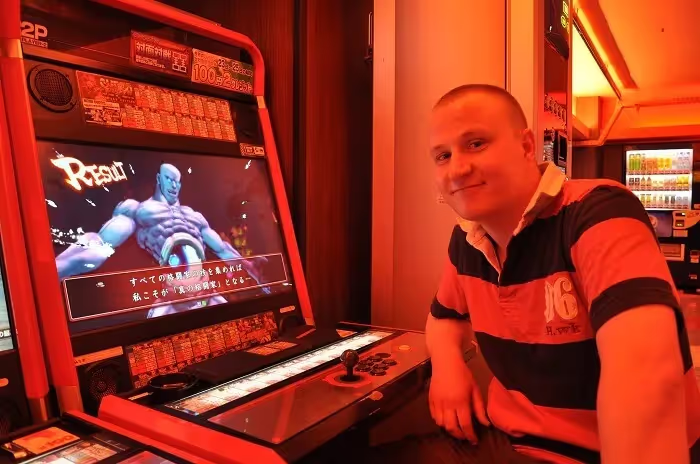In the wake of the release of Sekiro: Shadows Die Twice, much has been made of a possible ‘easy’ difficulty level and the idea of ‘gitting gud’.
A game being difficult to the point of frustration is just not fun. Running into the same scenario time after time only to meet the same fate time and again is not what videogames are about. Want to give me a challenge? Sure. Want me to persevere against the odds? Go for it! Beat me into submission until I never play your game again? Nah. It’s gatekeeping and, frankly, it sucks.
Don’t get me wrong, I understand the appeal of games like Dark Souls, Bloodborne and Sekiro. The rush you get from a successful fight can be exhilarating. I’m not arguing for that feeling to be stripped away from you. I’m arguing for compromise. I know how beating a game on crushing difficulty can be fun, but having that choice is incredibly important.

Erik Cain — in his article on Sekiro for Forbes — argues to the contrary. “It would be so simple to take the easy route,” he says. Given how strong-willed, unrelenting and hard as nails this community presents itself, these players would surely never succumb to such temptation? Or maybe they would because really, deep down, after their twentieth run at a late-game boss and failing, they’re not having fun either.
In a medium driven by choices and player agency, not offering consumers an option on how to play a game goes against all of that. Take Devil May Cry for example — a vastly different series of games to those above, but similar in many respects. Devil May Cry fans love their complex combos, triple-S ranks and uber-difficulty. However, with Devil May Cry 5 Capcom emphasised the experience of new players. The opening menus showcase the game’s ‘auto mode’ — a setting that allows less skilled players the opportunity to experience that game at its stylish, exciting, ridiculous best without punishment. Some may argue that this destroys the sanctity of the high scores, but surely the challenge is a personal one or something to share with friends? If you finish all the missions with triple-S ranks on the hardest difficulty, you still have your bragging rights.
Why can’t the same apply for FromSoftware’s notoriously difficult games?

And don’t ridicule us either — Wolfenstein II’s “Can I Play Too, Daddy?” mode springs to mind immediately. Upon the game’s release in 2017, Kotaku’s Ethan Gach described the labelling of the alternative WWII shooter’s easiest mode as an “insidious kind of peer pressure” and I couldn’t agree more. That same schoolyard bully sensibility goes hand-in-hand with cries of ‘git gud’ across the gaming community. In his piece, Gach describes how playing Wolfenstein II on its ‘normal’ difficulty made him miserable, but that he is “racked with guilt” the moment he drops down to a mode illustrated by BJ Blazkowicz as a bonnet-wearing baby. That’s just not right.
If you beat every boss, mini-boss and minion by the time Sekiro’s credits roll on normal, hard, or deathwish difficulty what does it matter if someone else beats it on easy, enjoys themselves and feels good about the experience they’ve just had? You did it your way. They did it theirs. People play games for different reasons. We know this. Why, then, does it seem so hard for some players to accept that?
“But it’s against the developer’s vision!” — a statement that starts yet another branch of this argument. Again, it’s a point that is null and void. The majority of modern games are designed to be played on some kind of ‘normal’ difficulty (i.e. a standard, well-balanced, mode). These games still offer alternative difficulties.

“It's just something required to make this style of game,” explains creator Hidetaka Miyazaki in a 2016 interview about Dark Souls III. “I've really been pursuing making games that give players a sense of accomplishment by overcoming tremendous odds.” That’s all well and good. I appreciate what Miyazaki is trying to achieve. However, there are other ways — more feasible, enjoyable ways — to pull this off that isn’t just beating players into submission.
The fact that Miyazaki and the team at FromSoftware rely on only a portion of the hardcore gaming audience being able to experience their game then, frankly, is flawed. These games are incredibly well crafted. Sekiro — and even Bloodborne in a macabre kind of way — are beautiful. Their worlds are incredibly well realised: some of the best of this generation. Not being able to see everything they have to offer, and knowing that going in, is demoralising.
Odds are there to be overcome, sure. However, even getting over that first hurdle requires a certain determination. If I buy a game I want to experience all of it. I don’t play games to feel bad about myself, to feel frustrated and lost.
I, like the majority of people out there, play games to enjoy them and the moment that adversity becomes more important than enjoyment then you’ve lost me and countless others. Adding an ‘easy’ difficulty level, or even a difficulty slider, would allow for a greater appreciation of games like Sekiro. And maybe, just maybe, we’d feel inclined to ramp it up a little. As is stands, all we have is an insta-kill at the first attempt.

It actually feels like the overwhelming — often humiliating — difficulty is the most important thing about Sekiro (and Dark Souls, Bloodborne, Demon's Souls and the games that have followed the same path). Is it actually that important? Does it truly outweigh everything else the game has to offer?
After all, playing a game on a lower difficulty isn’t wrong, it isn’t bad and it shouldn’t make you think less of others. It’s a valid way to play video games, and I shouldn’t have to remind people of that. And I must point out, I’m not shaming any of you who want to play a game like this either. You do you. Just let the rest of us join in too?
So, let us see everything a game like Sekiro has to offer. To deny players that choice is fundamentally against everything video games are about. Give us an easy mode. Let us play our way, and don’t ridicule us for it either.
You can subscribe to Jump Chat Roll on your favourite podcast players including:
Let us know in the comments if you enjoyed this podcast, and if there are any topics you'd like to hear us tackle in future episodes!

.avif)


